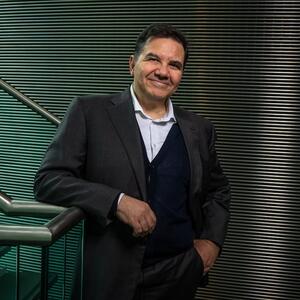Written by
Published
Category
Key topics
Protecting the environment and achieving net-zero emissions requires a radical assessment of how businesses operate. The Leonardo Centre on Business for Society is helping to accelerate that change
Climate change is arguably the biggest crisis to face humanity in our history. Indeed, such is the scale of the task ahead that, even if we achieve a number of significant environmental goals – including cutting emissions, recycling more, and developing new technologies such as carbon capture – it still might not be enough. To effect a true green recovery will require changes that are even more profound, and which involve a fundamental reassessment of how businesses operate.
We should also acknowledge that this revolution in the way companies think and act in the world will affect every sector of the global economy, and not just those responsible for generating the lion’s share of emissions. In some industries, of course – such as oil and gas, transport, and petrochemicals – the transition to a greener economy will affect their core products and processes. However, every company – no matter what products it makes or services it offers – has a pivotal role to play because each one forms a link in a larger supply chain. And the world’s ambitious net-zero targets will only be achieved if sustainable business practices can be embedded right across the global supply chain.
A new logic for business
If every company has a role to play in the green recovery, so too does every section of society – from politicians establishing the legislative frameworks and incentives to encourage desired behaviours, to voters, consumers and investors putting pressure on businesses to prioritise environmental concerns alongside revenue and profits. Finding a solution to the challenges of climate change will require nothing less than the reinvention of the role of business in our society or, as we have termed it at Imperial Business School, a new “logic for business”.
The “logic” underpinning a company starts with its business model but also feeds into its wider purpose and identity, its leadership mindset and culture, its growth and cooperative strategies, its incentive and control systems, and the actions and attitudes of all the partners in its supply chain. And while affecting a change this revolutionary is undoubtedly challenging, the good news is the positive environmental impact it creates can be equally transformative. It is estimated that around 1,000 of the world’s largest multinational companies and their supply chains account for 70 per cent of global GDP. So if this relatively small group of companies can reinvent themselves to achieve net-zero, the world will be well on the way to doing the same.
Our role
So how are we, at Imperial Business School, helping to bring about this change? We have established the Leonardo Centre on Business for Society, a multi-faculty centre of excellence based at Imperial whose purpose is to collaborate with businesses, policymakers and civil society to develop business models capable of meeting the environmental and social challenges of the 21st century. The Leonardo Centre currently collaborates with 15 research centres and brings together a global community of 150 scholars.
One unique and valuable tool at our disposal is the GOLDEN dataset, which tracks the actions companies around the world have taken since 2000 to support environmental and social regeneration. By analysing and modelling this dataset with the help of advanced machine-learning algorithms, we are able to identify the optimal combination of initiatives to address societal issues such as inequality and climate change. The Leonardo Centre’s goal is to identify sustainable actions by companies in each economic sector that have proved successful and then share these insights with others to further accelerate change.
The ultimate ambition is therefore to create a new logic for business so companies can achieve sustainable growth while serving not only the interests of their clients and investors, but also those of their employees, suppliers and local communities. Protecting our environment and achieving net-zero will require radically new ways of thinking and working. This is why we are encouraging business leaders, policymakers and academics to work with us to find the best and quickest way of getting there.



